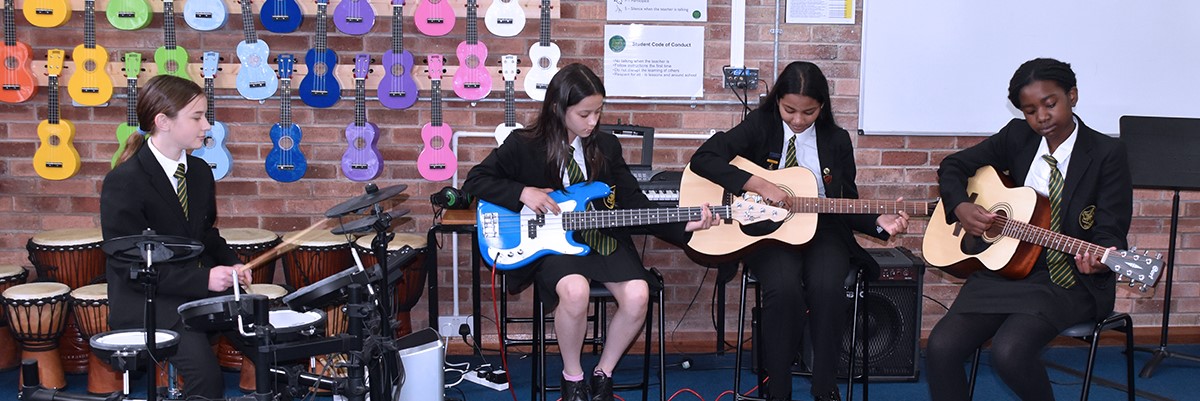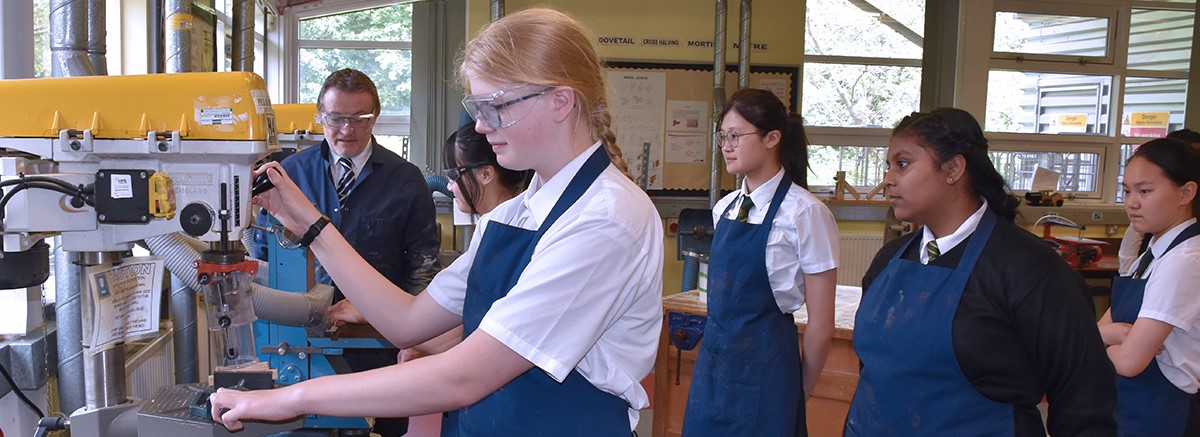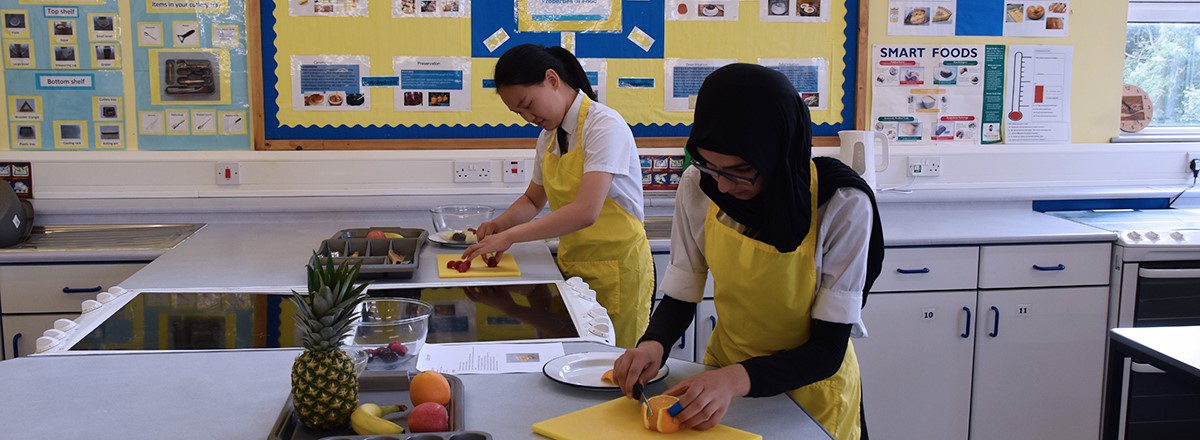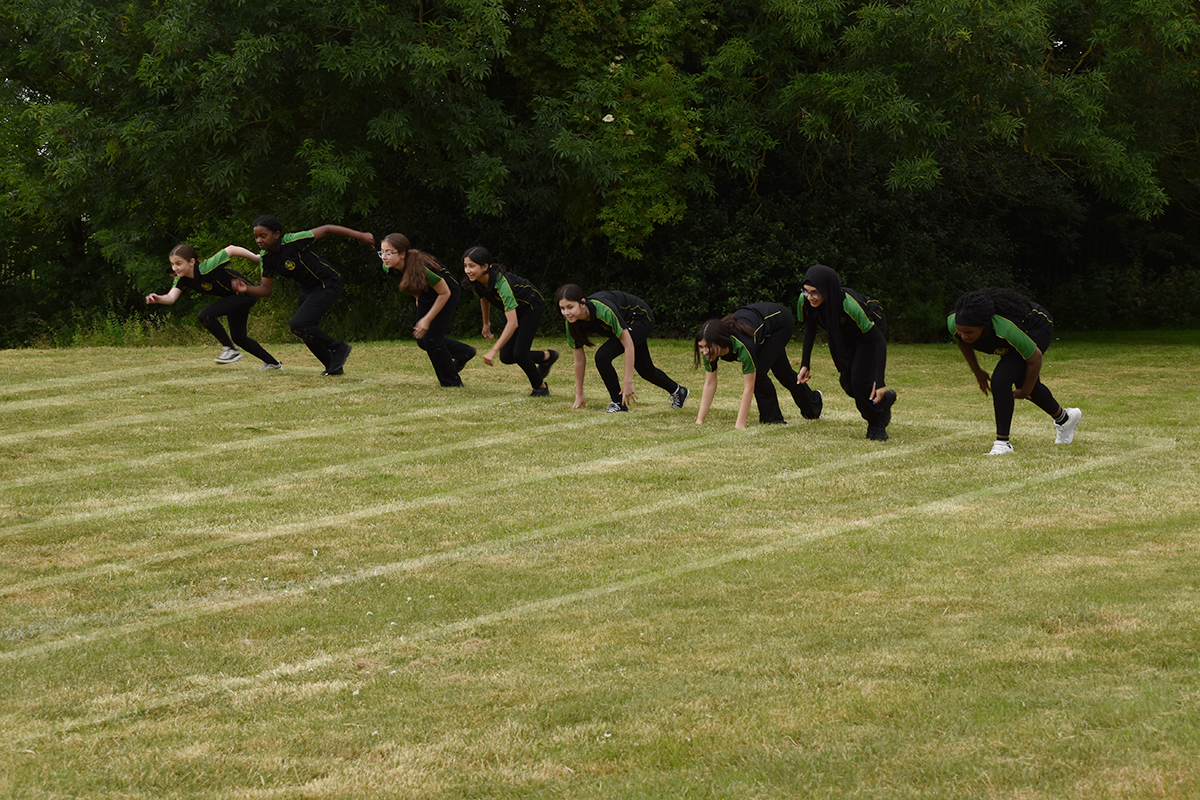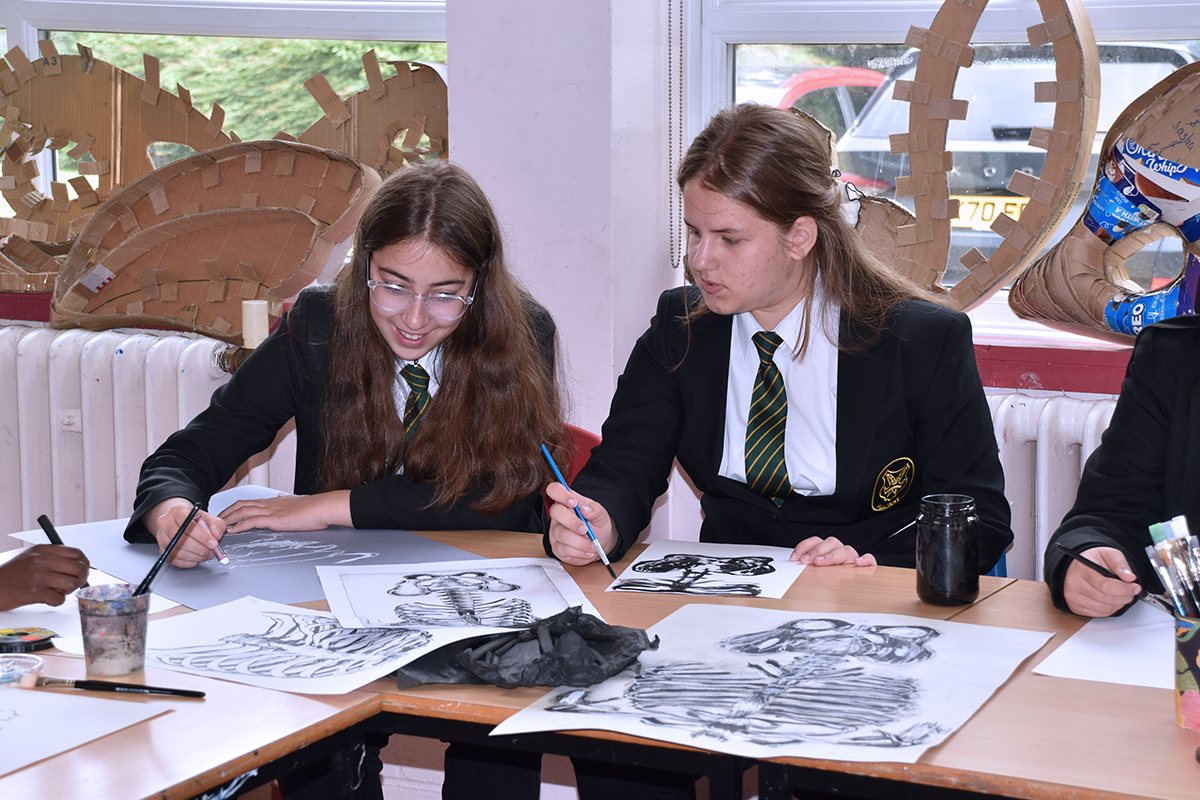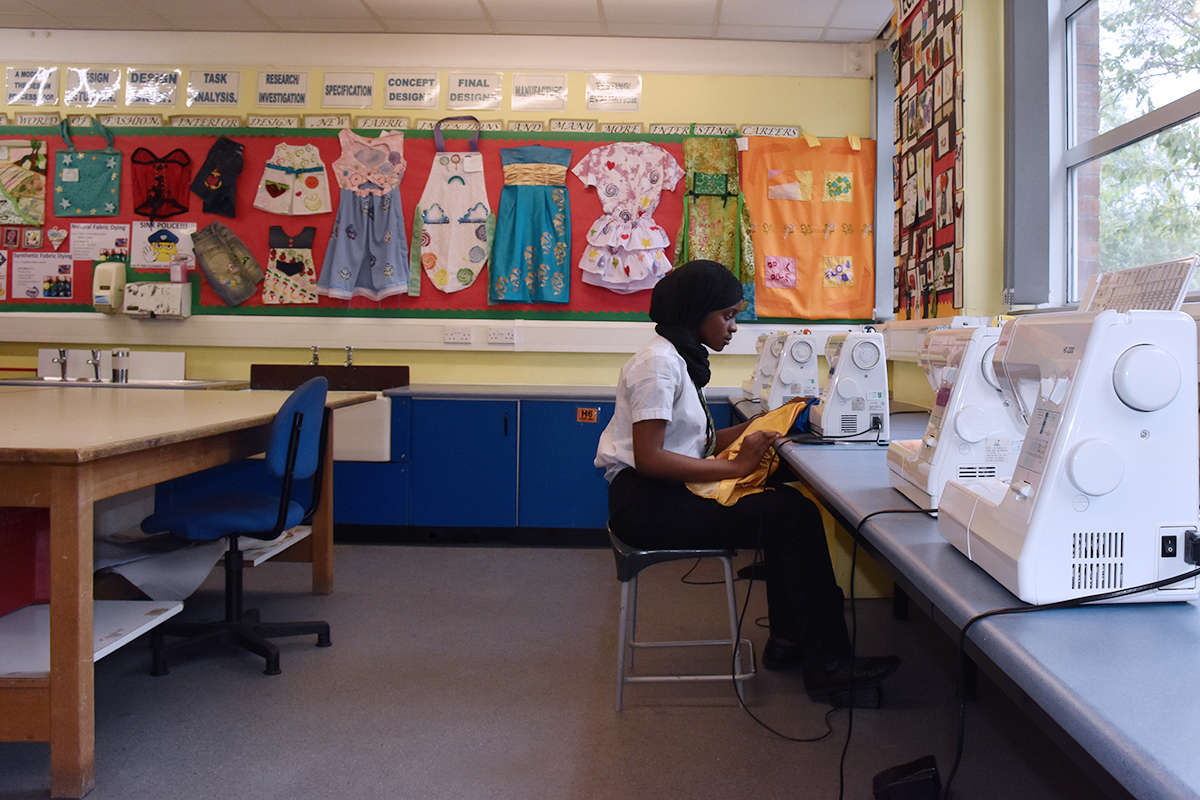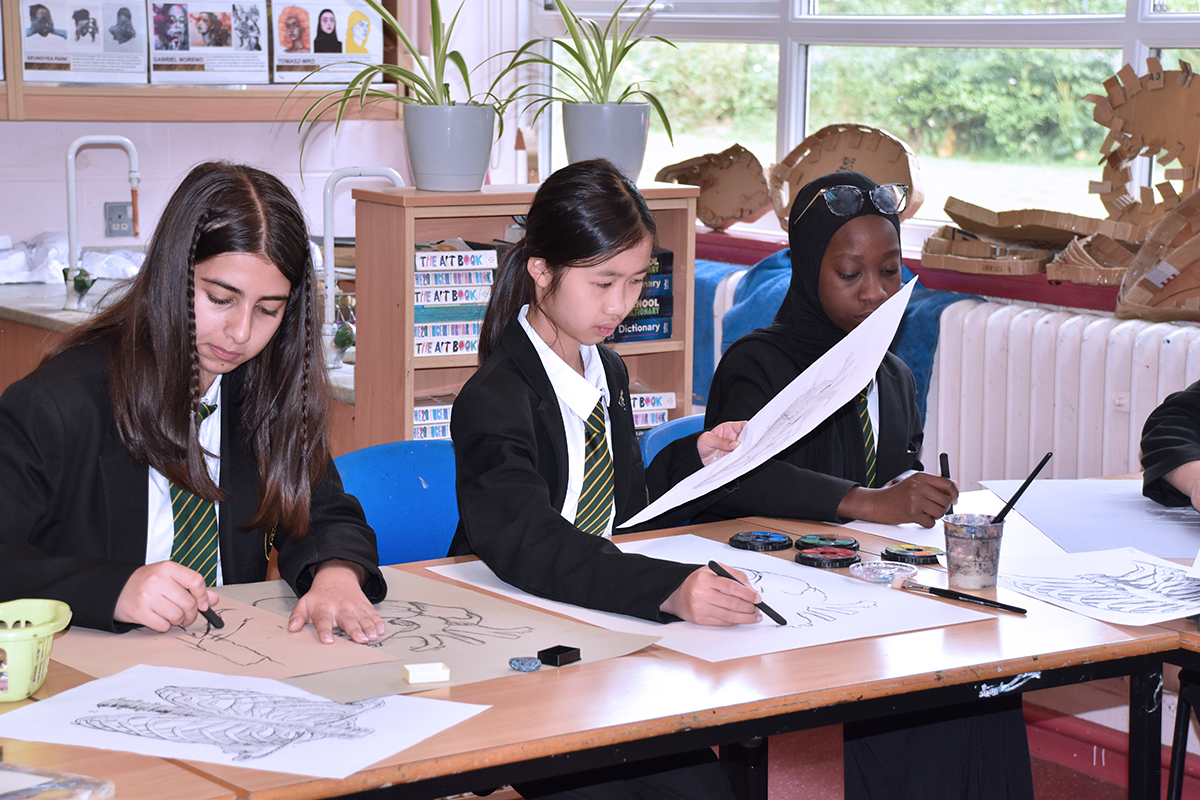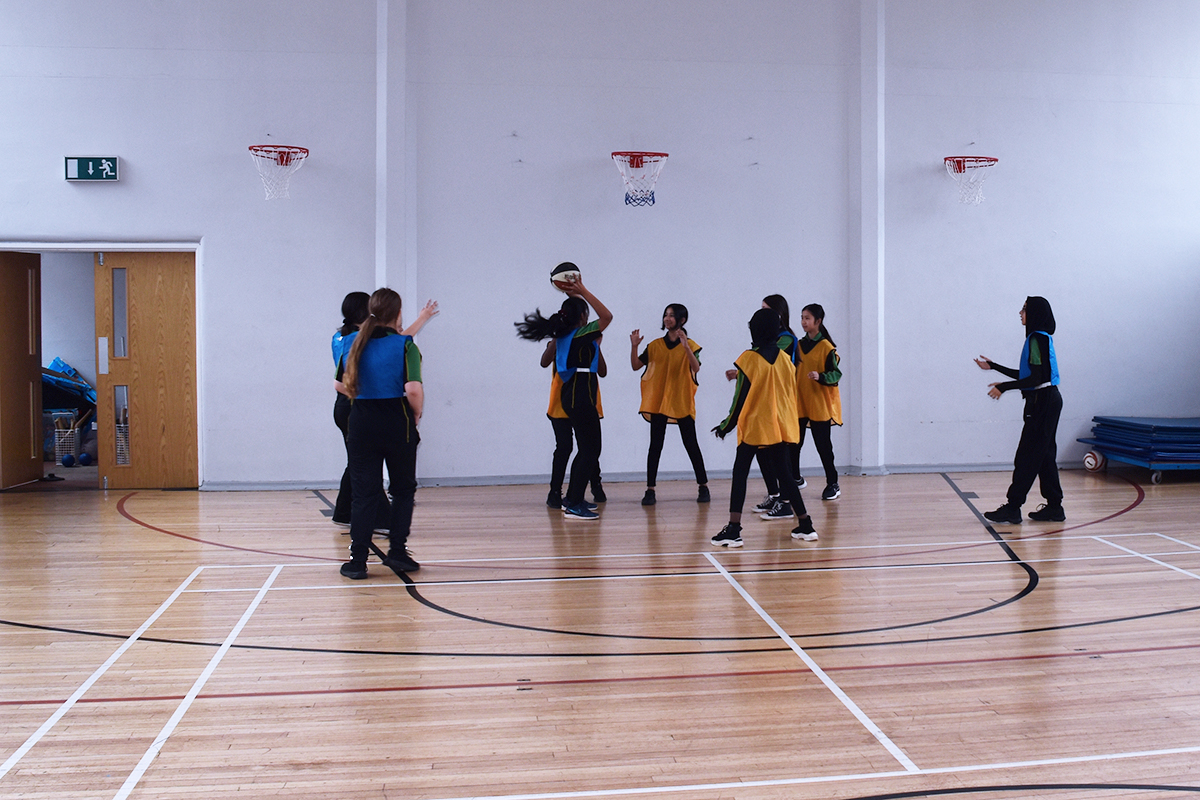History
KEY STAGE 3 CURRICULUM
Students in Key Stage Three will study a combination of British and World History. The topics studied in Key Stage 3 will give students a good grounding in the story of Britain from the Norman Invasion to present day. We will focus on particular questions of cause and consequence, change and continuity and significance, building up the qualities of a ‘good historian’ in students, such as the ability to analyse primary sources and historical interpretations. Students will also complete some wider-world studies to give them a broader perspective, some with a global focus such as the Silk Routes, and others with a regional focus such as European Dictatorships, as well as a local history study.
To prepare students for later, more in-depth study of history, the modules we study will be a mixture of development studies, which look at change and continuity over a long period of time, and depth studies, which focus on a particular question of causation or significance.
Year 7
Term 1
How has migration shaped the Midlands?
In this introduction to the study of History, students will learn about why people have migrated to Birmingham, looking at how migration has shaped our city. Through this topic, students will encounter the ways that historians find out about the past and the key concepts such as change and continuity. They will learn about different reasons for migration, including economic factors and war, and the huge variety of groups that have made the UK, and the Midlands, their home.
Which Persian King was the most effective ruler?
In this module, students will study the Persian Empire from 559BCE when Cyrus the Great conquered large areas of the ancient near east. They will explore how the empire grew and how the following kings contributed to this expansion.
Term 2
How have historians and archaeologists uncovered the history of the Silk Routes?
In this module, students will engage with a range of primary historical sources to piece together the story of the Silk Road and how this trade route connecting civilisations and influenced culture and religion. Students will compare what historians can learn from a range of sources, including written accounts and material culture.
How was England created?
In this module, students will look at the process by which England became a single kingdom in the early medieval period, focusing on the roles of different kings and queens and assessing the importance of the different individuals and groups involved in the process.
How did the Normans conquer England?
1066 is the most famous date in British History. In this topic, students will learn about the famous Battle of Hastings as well as the events that came after the battle that cemented William the Conqueror’s control over England. Students will evaluate the relative importance of different events in the conquest.
Term 3
What was it like to live in a Medieval village?
In this social history topic, students will study what day-to-day life was like in Medieval England for the majority of people: the peasants. They will look at the influence of the seasons on daily life, the power of the church, what it was like to grow up in the village, the and why some people were able to leave their villages.
How did Plantagenet Kings deal with threats to royal authority?
The Plantagenets ruled England for most of the late Medieval period. During that time, they faced many challenges to their power – from their barons, the Church, peasants, and even from their queens. In this unit, students will study the nature ofthose challenges, and the extent to which royal authority was threatened, focusing on the reigns of Henry II, John, Edward II and Richard II.
Why were the Crusades significant?
The Crusades is one name given to a series of wars and conflicts, mostly in the Middle East, but also in Eastern Europe and elsewhere, in the Medieval period. Students will study why the Crusades were important to people at the time, as well as their lasting legacy.
Year 8
Term 1
How ‘bloody’ were the Tudor monarchs?
The Tudor period was a period of huge change in England as the Reformation swept across Europe. Mary I earned the nickname ‘bloody Mary’ for her policy towards Protestants, but students will study whether it is fair that Mary is singled out for this title – were other Tudor monarchs just as brutal?
How effectively was the monarchy’s power restricted between 1603 and 1727?
There were two attempts by Parliament to reduce the power of the monarch in the seventeenth century: once with a Civil War and once with a new constitutional arrangement. Students will compare these two events and consider which one was a more effective way of increasing the power of parliament.
How can historians write the history of the Kingdom of Benin in the precolonial period?
Benin, a powerful kingdom in West Africa in the precolonial period, had a complex society, legal system and economy. Whilst many histories of the Benin have used European – particularly British – primary sources, this unit will look at how we can find out about Benin people from their own perspectives, using a range of primary material, including written sources and material culture.
Term 2
What were the experiences of enslaved people in the Transatlantic Slave Trade?
The Transatlantic Slave Trade, which lasted between the 16th and 19th centuries, saw the kidnapping, brutal transportation and enslavement of millions of West Africans, who were forced to work in plantations and other roles in the Americas by various European imperial powers. In this unit, students will study the experiences of enslaved people through various stages of this process.
Why was slavery abolished in the British Empire?
The slave trade was abolished in the British Empire in 1807, and slavery itself in 1833. There were various reasons that this reform was introduced, including the campaigns of individuals such as Olaudah Equiano and William Wilberforce, public protest through a sugar boycott, and the pressures put on slave holders by the rebellions of enslaved people, such as the Haitian Revolution and Samuel Sharpe’s rebellion in Jamaica. Students will study all of these factors, and reach a judgement about which the most important was in bringing abolition to the British Empire.
Why did Birmingham change so much between 1750 and 1900?
The Industrial Revolution transformed society in Britain and beyond. In this unit, we focus on Birmingham, which changed in many similar ways to other cities, but some different ways too. We will look at the changes to industry, transport and housing, and the key people and ideas behind those changes.
Term 3
Why do people disagree about what to call events in India in 1857?
Britain had a vast empire between the 16th and 20th centuries. In this topic, we focus in on a single event: a rebellion against British rule in India, variously called the “First War of Independence” and the “Sepoy Mutiny”. Students will understand the events of the rebellion, and why the different names chosen to describe it represent different perspectives about Empire.
How can historians understand the experiences of Indigenous peoples and others affected by the British Empire?
The indigenous experiences of Empire are sometimes harder to find, because fewer written accounts exist which explain them in detail. In this topic, students will look at a range of sources from a variety of indigenous groups across the British Empire and consider how historians can give agency to people who did not leave written accounts of their experiences.
Why is 1770-1860 known as the ‘Age of Revolutions’?
Many huge changes occurred across the world in the 18th and 19th century – the American, French and Haitian Revolutions, the Indian Rebellion, the ‘Year of Revolutions’, 1848, and many others. Students will study the worldwide connections between these events.
Year 9
Term 1
Epidemics in Britain: what’s changed?
Epidemics and pandemics have impacted human societies since the start of civilisation. In this unit, students will look at a range of epidemics and pandemics that have affected people in Britain since the medieval period, including the Black Death, the Great Plague, smallpox, ‘Spanish’ flu, HIV/AIDS and of course Covid-19. Looking at response to public health crises will give students insight into how scientific understanding has changed over time, the changing role of government and changes – and continuities – in society since the Medieval period.
Why did the world go to war in 1914?
The First World War had a death toll of over sixteen million people, and yet it was a single assassination that sparked this deadly conflict. In this module students will examine how the world got to the state where a single murder could lead to a global conflict.
How similar were frontline experiences of WWI?
There were many important theatres of the First World War. In this unit, students will study the different people who worked for the military in the war, comparing the experiences of frontline British soldiers, as well as the women nurses, other medical staff and various military and auxiliary roles fulfilled by people from throughout the British Empire, in Europe, the Middle East and Africa.
Why are different narratives told about Britain’s journey to democracy?
In the early 19th century, only about 6% of adults in the UK were able to vote: it was limited to rich men. By 1928, the franchise had been extended to all over-21s. There are different narratives about this journey – a narrative of class struggle, which focuses on the protests by working-class people and the removal of property qualifications for the franchise, and a feminist narrative, which focuses on some of the first feminist campaigners, the Suffragettes. In this topic, students will learn about the changes that took place to increase democracy in the UK, as well as how historians of different perspectives have reached their conclusions about these important changes.
Term 2
How different were the Soviet Union and Fascist Italy?
In this module, students will focus on case studies exploring Russia and Italy, comparing the concepts of communism and fascism to understand the impact that the regimes had on ordinary citizens. They will explore the concepts of similarity and difference, and look at how much political ideologies were adapted by rulers in power.
How did people resist the Holocaust and other genocides?
In this study of the Holocaust, students will study events from the perspective of those most affected: the Jewish victims and survivors. From small acts of resistance to organised armed rebellions, students will understand how Jewish people resisted the dehumanising and brutal treatment they endured at the hands of the Nazis and their collaborators. Students will also study resistance and agency of victims and survivors of other genocides: the Porajmos, Cambodian Genocide, Rwandan Genocide and Bosnian Genocide.
Term 3
What was the significance of the civil rights movement?
In this module, students will begin by exploring the context of racism in the USA, allowing them to understand why the civil rights movement began. They will explore the key events such as the Montgomery Bus Boycott and understand the role of individuals.
Why do historians Hyam and Burton explain decolonisation differently?
In this module, students will develop their understanding of how and why conflict has developed in 20th and 21st centuries around the world. This will include case studies on events such as the Iraq war. This module will allow students to apply their knowledge of the world we live in today and how it has been shape.
Key Stage 4 Curriculum
AQA GCSE HISTORY
EBACC OPTION SUBJECT
COURSE CONTACT: Mrs A Buncey– HEAD OF DEPARTMENT
Exam board website: https://www.aqa.org.uk/subjects/history/gcse
Course Content
In GCSE History, students will build on the understanding of concepts they learnt in KS3.
In Year 10, students will prepare for Paper 1: Understanding the Modern World. They will start with a period study of Germany between 1890 and 1945, looking at three contrasting political systems – a monarchy under Kaiser Wilhelm II up to 1918, a democracy during the Weimar period between 1918 and 1933, and then the way Hitler and the Nazis turned Germany from a democracy into a dictatorship. This study will focus on the experiences of German people under the different political systems. In the second half of Year 10, students will study their Wider World Depth study, which is International Relations between the two World Wars. They will look at the peace settlement after WWI, the attempts to create an international organisation which could maintain peace between countries – the League of Nations – and the slow build-up to another global war in the 1930s.
In Year 11, students will prepare for Paper 2: Shaping the Nation. They will start with a depth study of the reign of Elizabeth I, looking at her leadership – in particular, the difficulties she faced as a female ruler – the religious changes that she introduced, the changes in society such as the growth of the theatre and the rise of the middle classes, the ‘voyages of discovery’ and England’s increasing connections with the wider world. Students will also study threats to her power, from attempted rebellions to the Spanish Armada. After the Elizabeth unit, students will move on to their development study – tracing the theme of migration and empires in Britain and other places connected with Britain from the year 790 to present. This study encompasses a huge sweep of history, from Vikings to the European Union via the British Empire, so students will be able to study how a few concepts have changed (and in some cases, continued) over time.
Assessment Details
The assessment for GCSE History takes place in two examinations at the end of Year 11. Different historical skills are tested in each paper. Each paper is worth 50% of the GCSE.
Paper 1: Germany 1890-1945 and the Interwar Conflict and Tension 1918-1945
Paper 2: Migration and Empire c.800-present and Elizabethan England 1568-1603
The assessments test the following assessment objectives:
AO1: ability to recall knowledge and understanding
AO2: ability to explain concepts like cause and consequence, change and continuity, and significance
AO3: ability to analyse sources
AO4: ability to analyse historical interpretations
Why Study This Course?
In History you will learn about people, countries, cultures, and societies – you will learn about a huge range of people and societies from medieval kings to 20th-century dictators and everything in between. You will learn to sift through information and present what you’ve learnt in a way that makes sense to other people.
The knowledge you gain in History will support your understanding of other subjects, such as English. It can lead to a range of further study options – such as History A Level, but also other subjects as the skills you learn in History support your ability to think clearly, construct an argument and analyse evidence. These qualities will also help you in a range of careers, from healthcare to law.

